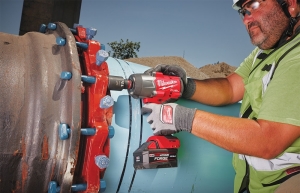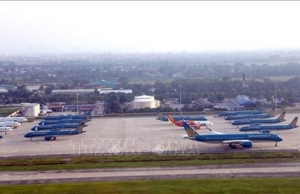Vietnam’s advantages offering fertile ground for further US investments
Vietnam is now a key player on the global economic stage and serves a critical role in many vital global supply chains. The United States has been Vietnam’s steadfast partner. At the turn of the century, the two countries signed a robust bilateral trade agreement to expand our economic relationship.
 |
| Lam Nguyen Hoang Thao - Senior associate Russin & Vecchi |
In 2007, Vietnam joined the World Trade Organization. Since then, the two economies’ relationship has only broadened and deepened. Their trade now encompasses everything from machinery to textiles to electronic components. For the past two decades, trade between the pair grew at nearly 25 per cent a year. Not only has US imports of Vietnamese goods skyrocketed, but today, the US exports nearly 20 times more to Vietnam than in 2002.
Many of America’s largest companies – like Apple and Google – have a significant and growing presence in Vietnam.
This past March, the US-ASEAN Business Council organised a significant business mission to Vietnam, attracting over 50 prominent US firms, including industry giants Boeing, Meta, and SpaceX.
This event highlighted the growing opportunities in many sectors such as agriculture, aerospace, digital economy, and green economy, within the dynamic Vietnamese market.
Characterised by stable GDP growth and manageable inflation rate, Vietnam is a fertile ground for US investments.
Specifically, Vietnam’s strategic location gives convenient access to significant markets in Asia, facilitating cross-border collaborations. The country boasts a growing population with increasing demands, notably in the electric vehicle sector, which is projected to grow significantly in the coming years. In addition, compared to neighbouring countries, Vietnam offers a competitive edge with its lower labour costs.
Over the years, the country has elevated its position in the World Bank’s Ease of Doing Business index, indicating an increasingly favourable business environment. The US and Vietnam have been nurturing a stronger economic bond, enhancing the latter’s role in the global strategy of US companies.
Despite these advantages and to fully capitalise on the potential of the Vietnamese economy, certain impediments need to be addressed to encourage increased US investments. Critical barriers identified by the World Bank’s 2020 report include firstly complex administrative procedures – Vietnam has a complex regulatory environment, which can make it difficult and time-consuming for businesses to set up and operate.
The second barrier is limited access to finance – smaller businesses in Vietnam often have limited access to finance, which can make it difficult for them to grow and expand. Thirdly, there are regulatory compliance costs which can be high and can deter some businesses from investing.
Lastly, the enforcement of legal decisions in Vietnam can be slow and inefficient, which can create uncertainty for businesses.
To enhance the business environment, Vietnam can take a number of steps. Specifically, it can simplify its regulatory environment by streamlining procedures for business registration and licensing, and, introducing digital platforms to facilitate smoother business registrations and approvals.
In addition, the country should develop policies to support the development of capital markets to make it easier for businesses to access finance and foster an environment conducive to private sector growth. What is more, Vietnam can reduce the cost of complying with regulations by implementing a digitalised management system.
And finally, Vietnam’s enforcement of contracts and property rights is weak. This makes it difficult for businesses to resolve disputes and protect their assets. The government needs to strengthen the legal system and improve the enforcement of contracts and property rights.
Vietnam has a lot of potential to entice US investors for many years. However, it still has a number of major barriers to which the government must pay special attention and find solutions to remove them. If the government can remove these barriers, the nation will be in a much better position to attract more US investment and achieve its economic goals.
Vietnam should collaborate with international organisations to learn from the experience and best practices of other countries which have been successful in removing these barriers.
Despite the projected headwinds for the global economy this year, the American business community still considers Vietnam to be a strategic market in the region and gives commitment to long-term investments.
 | Fresh US investment likely on back of presidential visit A hallmark visit by the US president to Vietnam will help usher in a new landscape for bilateral cooperation in trade and investment. |
 | US supports Vietnam in air traffic management The Vietnam Air Traffic Management Corporation (VATM) and the United States Trade and Development Agency (USTDA) on September 11 signed a funding agreement on technical support on building advanced concepts of operations (ConOps) and functional requirements for air traffic management automation system and requirements of air traffic flow management system in Vietnam. |
What the stars mean:
★ Poor ★ ★ Promising ★★★ Good ★★★★ Very good ★★★★★ Exceptional
Related Contents
Latest News
More News
- MAE names big 10 policy wins in 2025 (February 06, 2026 | 08:00)
- US firms deepen energy engagement with Vietnam (February 05, 2026 | 17:23)
- Vietnam records solid FDI performance in January (February 05, 2026 | 17:11)
- Site clearance work launched for Dung Quat refinery upgrade (February 04, 2026 | 18:06)
- Masan High-Tech Materials reports profit: a view from Nui Phao mine (February 04, 2026 | 16:13)
- Hermes joins Long Thanh cargo terminal development (February 04, 2026 | 15:59)
- SCG enhances production and distribution in Vietnam (February 04, 2026 | 08:00)
- UNIVACCO strengthens Asia expansion with Vietnam facility (February 03, 2026 | 08:00)
- Cai Mep Ha Port project wins approval with $1.95bn investment (February 02, 2026 | 16:17)
- Repositioning Vietnam in Asia’s manufacturing race (February 02, 2026 | 16:00)

 Tag:
Tag:



















 Mobile Version
Mobile Version